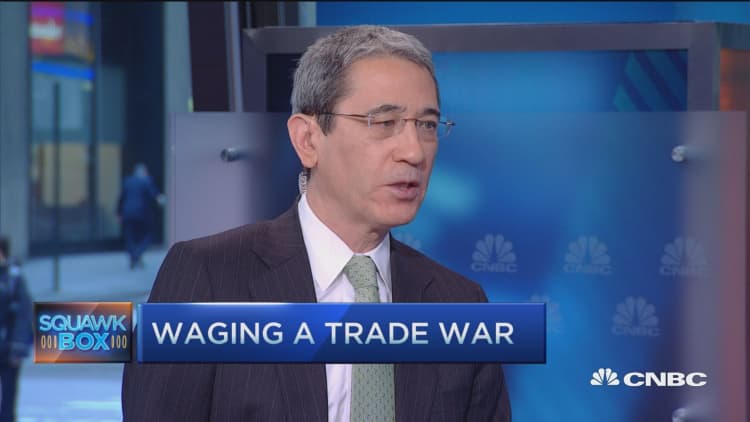
If Donald Trump were to become president, he would not be able to start a trade war with China, said Gordon Chang, author of "The Coming Collapse of China." That's because the Chinese have already been targeting American businesses, he said Friday.
In Thursday night's Republican presidential debate, Trump clarified his call for a 45 percent tariff on Chinese goods. "The 45 percent is a threat that if they don't behave, if they don't follow the rules and regulations so that we can have it equal on both sides, we will tax you."
"People say [Trump] would start a trade war. Well, no matter what The Donald does he can't start a trade war because we're already in a trade war with China. But only they are waging it," Chang told CNBC. "The question is how do we end it on terms not only advantageous to the United States but also to the international community."
In a "Squawk Box" interview, Chang said tariffs on Chinese exports to the U.S. might have to be on the table. "All choices are really bad."
"China is [also] stealing intellectual property from the United States," he said, pointing to the 2013 IP Commission Report. "The dimension of that is somewhere maybe $200 billion to $300 billion a year. That is a war in a sense."
In a CNBC interview Thursday, Trump called Beijing "the grandmaster of all" when it comes to currency manipulation and free trade cheating. Trump also told "Squawk Box" that global currency devaluation efforts are hurting the U.S. and costing American jobs.
Chang said Trump's assertion that China is devaluing the yuan is incorrect because Chinese policymakers are actually intervening to boost the currency to prevent capital flight. China's central bank on Friday guided the yuan higher against the dollar by the fastest pace this year.
If this trend continues, a higher Chinese currency would actually be "helping American exporters," making U.S. goods sold there cheaper, Chang said.



